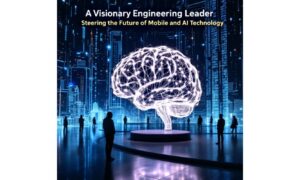As technology continues to evolve, artificial intelligence (AI) is becoming an integral part of various sectors, including education. The rise of AI in educational environments has opened up new possibilities for improving teaching methods, personalizing student learning experiences, and streamlining administrative processes. This transformation is not merely about technical enhancement; it’s reshaping how educators and students interact with learning materials and the educational institution itself.
The Role of AI in Education
AI technology serves multiple roles within education, from administrative assistance to personalized learning experiences. One of the significant benefits is that AI can facilitate administrative tasks, allowing educators to spend more time focusing on teaching. In particular, AI Grader is software designed to evaluate student assignments and assessments automatically. Providing a mechanism for faster grading relieves teachers from repetitive tasks, improving their efficiency and allowing them to dedicate more attention to student engagement and creativity in lesson planning. In addition to easing teacher workloads, AI-driven tools can collect and analyze vast amounts of data about student performance. This capability enables educators to tailor their teaching strategies according to the unique needs of each student. With individual performance insights, AI can suggest specific resources or interventions that might help a struggling student. The key is that AI tailors the educational experience, maximizing student outcomes and fostering their academic growth.
Personalized Learning Experiences
Personalization in education is becoming increasingly important. Traditional one-size-fits-all approaches often fail to meet the diverse needs of students. AI technology changes the game by creating a more personalized learning environment, adjusting in real-time to individual learning paces and styles. For instance, adaptive learning platforms powered by AI assess a student’s mastery of subjects and adapt the content accordingly. If a student excels in a specific topic, the AI can present more advanced materials while providing additional support if they struggle. By helping students progress at their own pace, AI promotes not only engagement but also retention of knowledge. Moreover, the interaction between AI systems and students can reinforce what they learn. Virtual tutors, powered by AI, offer explanations and resources tailored to students’ inquiry. This constant feedback loop builds a student’s self-confidence and encourages independence in learning.
Enhancing Teacher Capabilities
While the focus on AI often highlights its impact on students, it’s equally important to recognize how it enhances the capabilities of educators. AI equips teachers with tools that can streamline lesson planning, content curation, and student assessment. Data-driven insights provided by AI can inform instructional strategies. For example, teachers can access analytics that highlight trends in student performance across different demographics, enabling them to adjust teaching methods to ensure all students are meeting their potential. Furthermore, AI supports continuous professional development by recommending additional training or resources that align with a teacher’s strengths or improvement areas. Collaboration between AI and educators can create a more dynamic classroom environment. As teachers adopt technologies that reduce their administrative burdens, they can engage more authentically with students. In nurturing this relationship, educators become facilitators of learning, guiding students based on insights drawn from AI analytics.
The Future of AI in Education
The future of AI in education appears promising. As technology continues to advance, we will witness even more sophisticated tools aimed at enhancing education. AI will likely become a staple in classrooms, supporting teachers and providing individualized support for students. Institutions are investing in AI technology to keep pace with these rapid advancements, recognizing its potential to improve not just learning outcomes but also overall efficiency in educational settings. However, ethical considerations surrounding AI must also be taken into account. Issues of data privacy, equity, and accessibility are paramount.
As educational institutions adopt AI tools, they must be aware of the implications these technologies have on diverse populations of students. Ensuring equitable access to AI-assisted tools will be critical as we move forward. The integration of AI technology into education is not merely an enhancement but a fundamental transformation of the educational landscape. With its potential to personalize learning, streamline processes, and empower educators, AI is set to play a vital role in shaping the future of education.




































